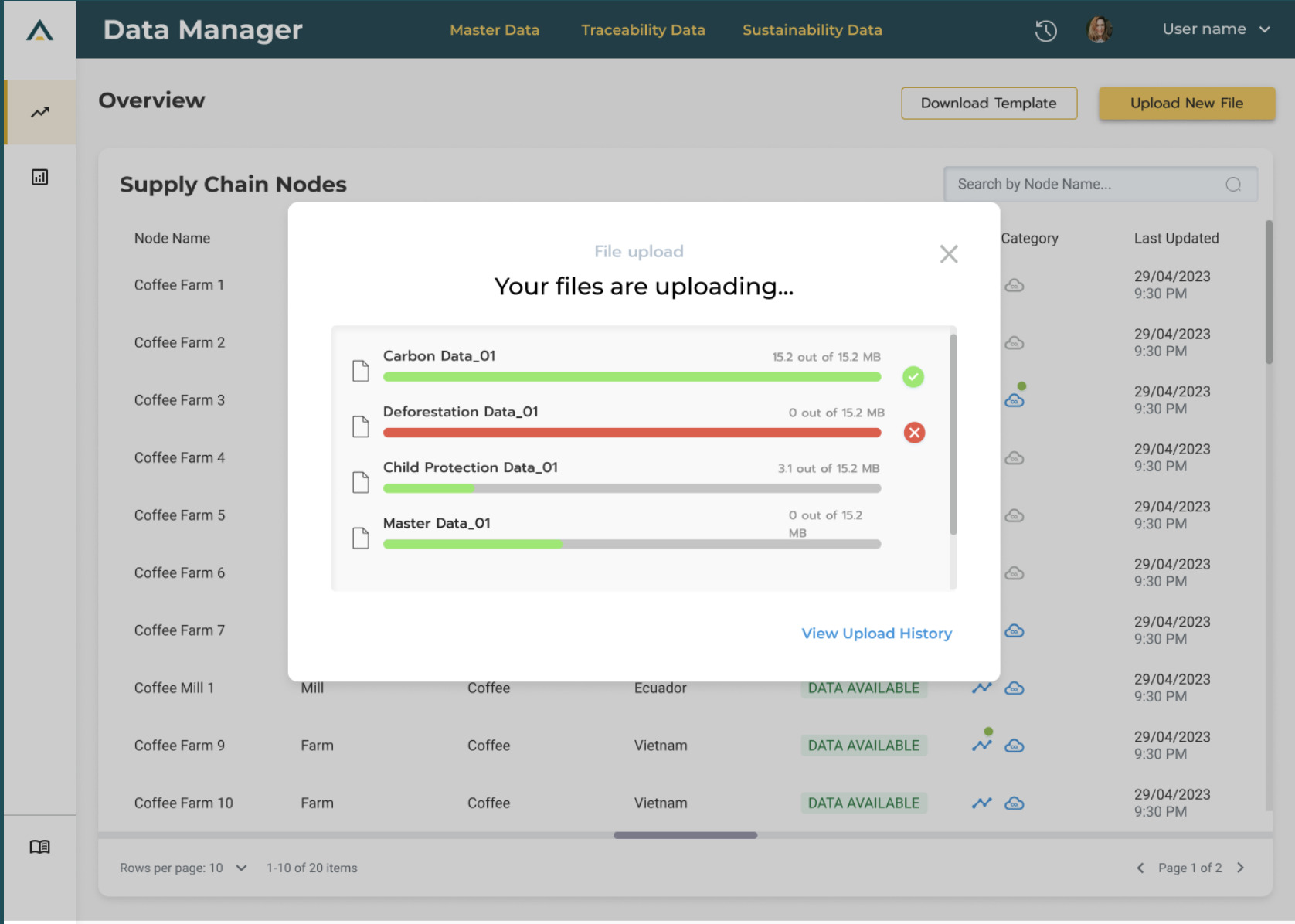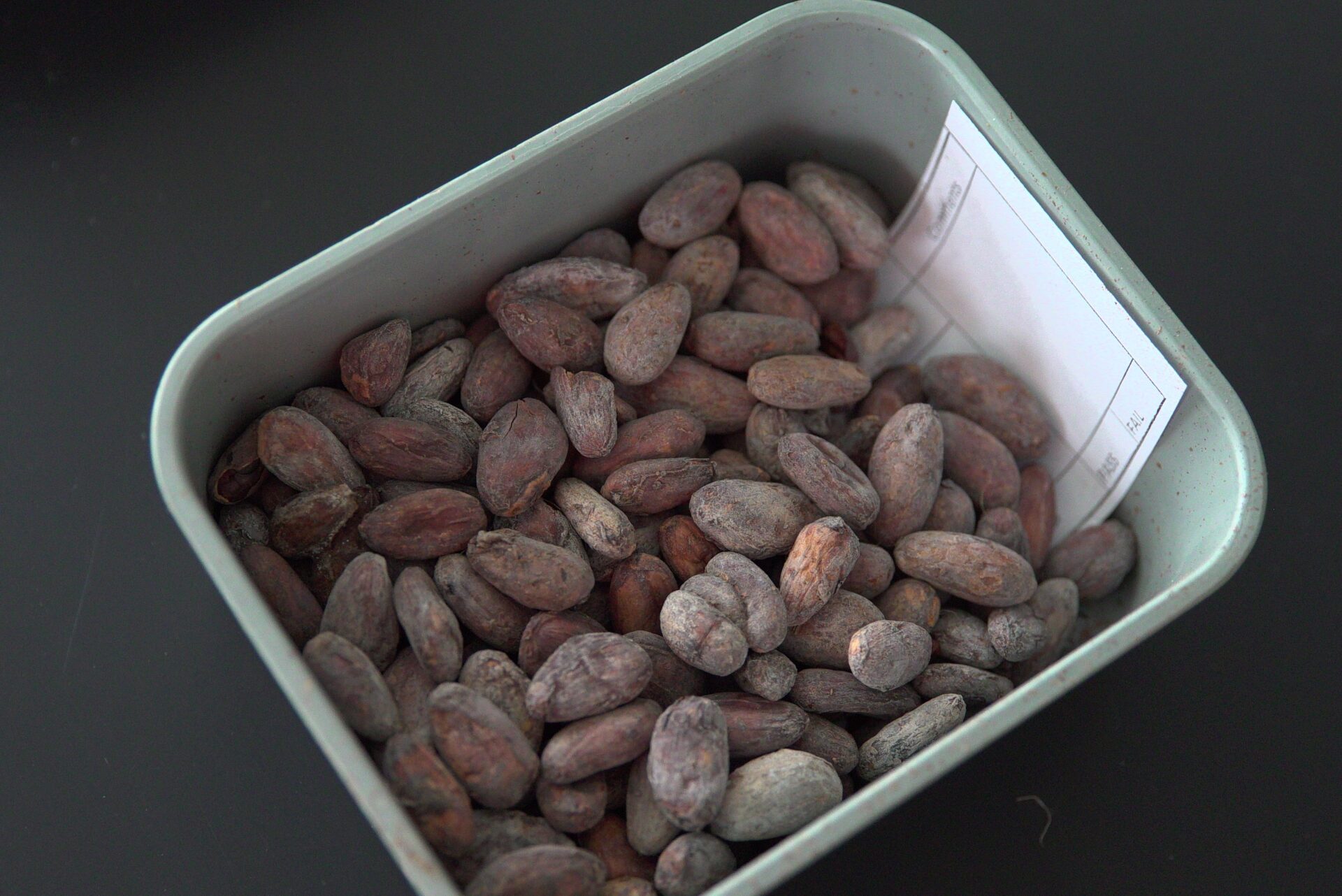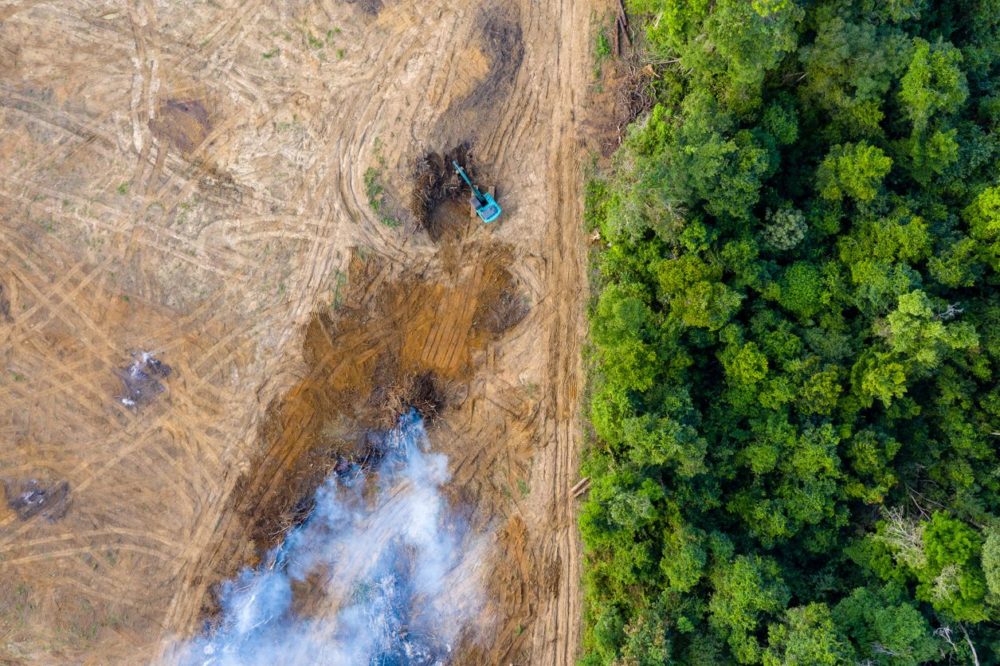Ten years ago, just a handful of agrifood corporates had publicly committed to decarbonizing their supply chain. More have followed since the pandemic first surfaced, but while that list grows, the timeline for reducing emissions and cleaning up supply chains by 2030 is shrinking fast.
“For a lot of these public commitments, the time is now to start making real change,” Allison Kopf, newly appointed CEO of sustainability measurement platform TRACT, tells AgFunderNews. “Ten years ago it was just a commitment.” Now, those timelines are coming up, but many corporates still lack adequate data and insights on sustainability performance, to say nothing of a standard set of measurement tools for the whole industry.
Kopf, a longtime agrifoodtech entrepreneur who founded indoor ag startup Artemis (acquired by IUNU), joined TRACT in January, excited about the company’s goal to, in its own words, provide “a common language” for the ag and food system when it comes to measuring sustainability efforts.

‘It’s a little bit crazy to be as broad as this’
There’s currently no single system for agrifood corporates to trace sustainability across supply chains and various commodities. The TRACT platform aims to fill that void by acting as a central repository for all of a company’s sustainability data and providing a measurement framework designed through working groups with industry experts, specialists and stakeholders.
For example, TRACT has so far worked with Global Forest Watch, AIM Progress, and Google on a variety of metrics around carbon, deforestation, biodiversity, labor, and human rights, to name just a few.
Once it has data, the TRACT system can map a product’s journey along the supply chain to provide information on a company’s performance in each of these metrics.
“We’ve had a unique opportunity to gather people in a pre-competitive way to actually align [sustainability metrics], and that’s a distinct advantage we have in the market,” says Kopf. “Our team of sustainability experts does an incredible job at this, our technical working groups bring together the industry to think about these different topics around land carbon, living income, child labor, etc.”
“It’s a little bit crazy to be as broad as this,” she adds. “But the idea here is that there are other solutions on the market — which is a good thing — doing different components of data collection or data aggregation or analysis. But they’re all very one-point solutions.”
As Kopf suggests, massive corporations need more robust tools to adequately measure their own sustainability footprint.

‘A monumental task’
“Sustainability departments at these companies are tasked with something incredibly challenging,” says Kopf.
Agrifood corporates (think General Mills, Cargill, etc.) are massive organizations. “When they’re thinking about sustainability, they’re not thinking about just carbon, just regen ag, just deforestation. And they’re not thinking about it per commodity, either. They’re thinking about it across their entire portfolio of commodities, which may be one but could be 20 or 30 or 40.”
She adds that while there are plenty of great companies out there dealing with data collection, aggregation and analysis, “nobody’s taken on that monumental task of trying to do all of the sustainability things across all the different commodities.”
TRACT’s goal to do this is one of the major points that attracted Kopf to the company.
“Because of how we’re positioned, our team and their backgrounds, we’re in a really good position to meet customers where they’re at and try and solve the challenge of actually delivering a solution that can help them think about sustainability holistically.”
Of course corporate greenwashing claims are rampant these days as companies scramble to include labels like “eco-friendly,” “clean” or “carbon-neutral” on their labels in response to pressure from consumers and advocacy groups. Reports surface regularly about corporates lagging behind when it comes to their climate goals.
Kopf says that some of this criticism is fair. “These companies are big enough that there should be movement on things, and it shouldn’t just be greenwashing.”
On the other hand, she notes that many are “trying really hard” and taking steps.
“We’re talking about some of the largest supply chains in the world. We’re talking about palm we’re talking about soy, we’re talking about cotton. To think about monumentally shifting the supply chains forward is a task that is sometimes hard to even conceptualize, because it’s a globally fragmented supply chain.”
By way of example, she references her time at Artemis collecting data from farmers. “To digitize that data collection was challenging enough, and we were in the US with good connectivity and technology educated users.”
“Now think about these supply chains that stretch globally across smallholder farms in every corner of the world, where that connectivity challenge is exponentially more difficult. We’re talking about education gaps, technology access gaps, and we can’t just collect all of this data instantly. To actually implement technology and processes to scale is very, very challenging.”

Sustainability: If you’re not tracking it, you’re not proving it
Some areas of sustainability are seeing movement thanks to government mandates. For example, the EU Anti-Deforestation Regulation (EUDR) will, by the end of this year, require companies sourcing beef, soya, palm oil, cocoa, rubber, wood and coffee to prove that their supply chains do not contribute to forest degradation or destruction. (A group of EU countries is currently calling for “urgent revisions” to the new law to protect farmers.)
TRACT is currently readying an EUDR capability to help companies meet the end-of-year deadline. The platform will be able to track EUDR-specific due diligence around information gathering, risk assessment and risk mitigation through analyzing farms for deforestation, helping users locate relevant laws, helping users spot non-compliance and validating geolocation data, among other features.
“This is a first time experience for a lot of companies,” notes Kopf. “We provide a platform that allows users to track this information, and to do it in a way that not just meets the regulation requirements, but hopefully gets them to a place where they can start to analyze where they have risk, where they might want to take a change on a country-by-country basis.”
Not all areas of sustainability are spurred by government mandates as is the case with deforestation. However, Kopf says there are other incentives at play in other areas, such as carbon.
“Businesses will change behavior if there’s an incentive alignment,” she says. “There’s a myriad of ways that you can introduce incentive alignment. Financing is one. In order to do this successfully, there has to be involvement from banks to finance programs for transitional farming.”
Public commitments are another huge motivator, she adds. “A lot of these carbon commitments around 2030 are coming up, and companies are making shifts because of that.”
Whether because of incentives, mandates, or another motivation, like pricing premiums, Kopf says that for all companies, what’s most important is starting to track sustainability performance.
“If you’re not tracking this information and you’re not recording it, you’re not proving it. If you don’t have a mechanism to prove the supply chains are actually sustainable, you can’t really get to that premium price, those financial incentives, those public commitments that drive consumer behavior change.”





